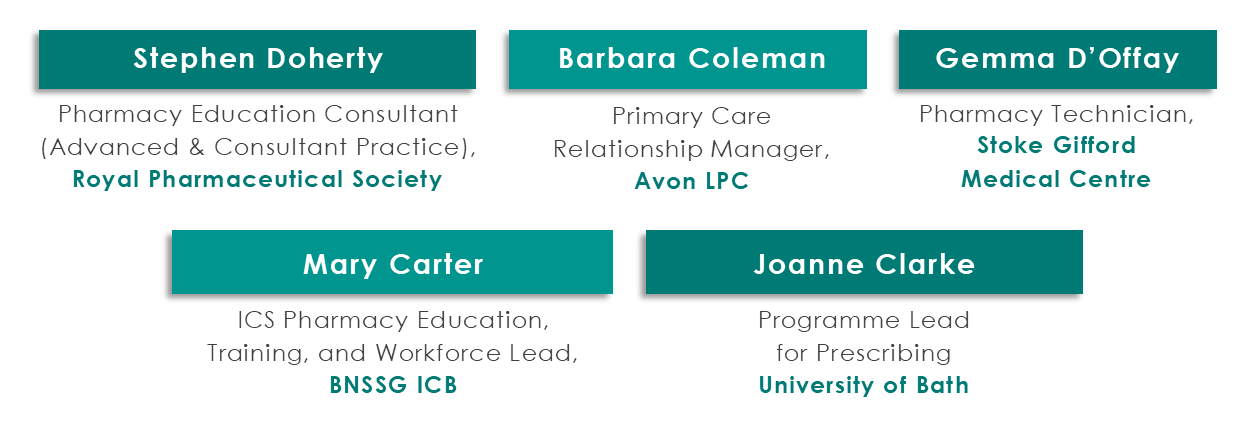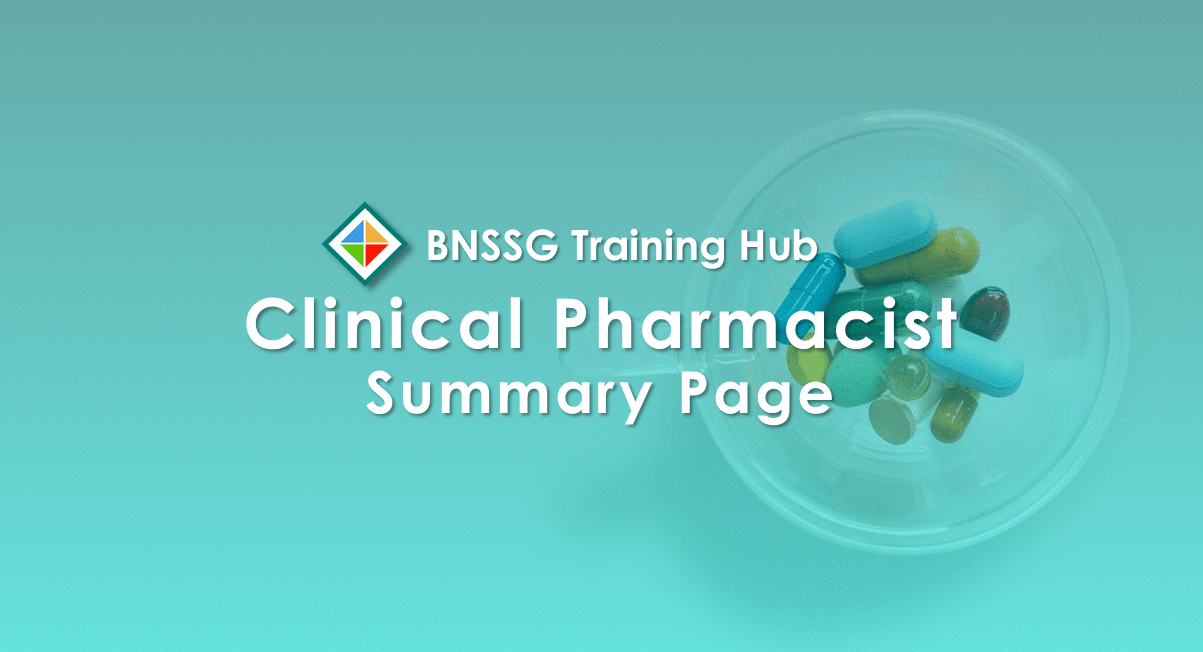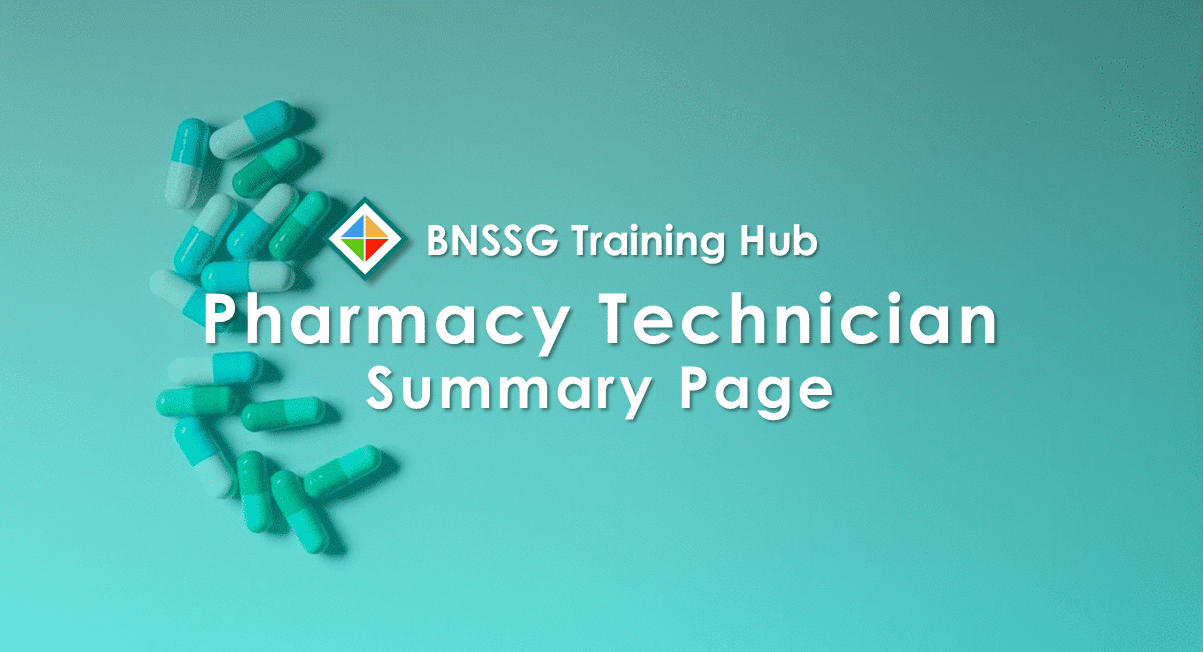
Running on Tues 1 November | 09.30AM - 12.30PM
What is this, and who is it for?
Organised by Joanne Clarke (Programme Lead for Prescribing, University of Bath), this FREE, face-to-face conference is a chance for primary care pharmacy professionals from across BNSSG – and from across general practice, primary care networks, the ICB, and community pharmacy – to network and learn together.
Over the course of the event, you will:
- Explore Educational Frameworks
- Share Best Practice
- Network with Peers
- This will be a chance to meet other pharmacy professionals within BNSSG, and to visit various stalls from a variety of organisations, to find out what they have to offer in terms of support and development.
- Explore Opportunities for Further Development
- Engage in Simulation Learning
- In particular, you will cover a couple of scenarios based on consultations with members of the transgender community, covering best practice. We hope to be joined by someone with lived experience, to share their views and experiences.
Who will be speaking?
Where will this be?
BAWA Healthcare & Leisure,
589 Southmead Road,
Bristol BS34 7RG
Events Calendar
Look for more
|
- - - |
- - - |
- - - |
- - - |
- - - |
- - - |
- - - |
|
DN_T |
DN_T |
DN_T |
DN_T |
DN_T |
DN_T |
DN_T |
|
DN_T |
DN_T |
DN_T |
DN_T |
DN_T |
DN_T |
DN_T |
|
DN_T |
DN_T |
DN_T |
DN_T |
DN_T |
DN_T |
DN_T |
|
DN_T |
DN_T |
DN_T |
DN_T |
DN_T |
DN_T |
DN_T |
|
DN_T |
DN_T |
DN_T |
DN_T |
DN_T |
DN_T |
DN_T |
|
DN_T |
DN_T |
DN_T |
DN_T |
DN_T |
DN_T |
DN_T |
|
|
||||||
|
- - - |
- - - |
- - - |
- - - |
- - - |
- - - |
- - - |
|
DN_T |
DN_T |
DN_T |
DN_T |
DN_T |
DN_T |
DN_T |
|
|
||||||
You have no events for this day
Look for more
You have no events for this month
Look for more
You have no events for this month
You have no events
stec_replace_summary
stec_replace_location
stec_replace_timespan
Event Info
Location
Schedule
Guests
Attendance
Forecast
Comments
stec_replace_summary
-
stec_replace_titleOrganizer of stec_replace_eventstec_replace_about
-
0
days
-
0
hours
-
0
minutes
-
0
seconds
Event expired
Event is in progress
Location
stec_replace_location
Get Directions
Could not find route!
Details
No schedule
- stec_replace_social
stec_replace_name
stec_replace_about
You are invited to this event!
Places left: 0
-
-
stec_replace_status
stec_replace_name
stec_replace_people
Weather data is currently not available for this location
Weather Report
Today stec_replace_today_date
stec_replace_current_summary_text
stec_replace_current_temp °stec_replace_current_temp_units
Wind stec_replace_current_wind stec_replace_current_wind_units stec_replace_current_wind_direction
Humidity stec_replace_current_humidity %
Feels like stec_replace_current_feels_like °stec_replace_current_temp_units
Forecast
Date
Weather
Temp
stec_replace_date
stec_replace_icon_divstec_replace_min / stec_replace_max °stec_replace_temp_units
Next 24 Hours
Powered by Forecast.io









